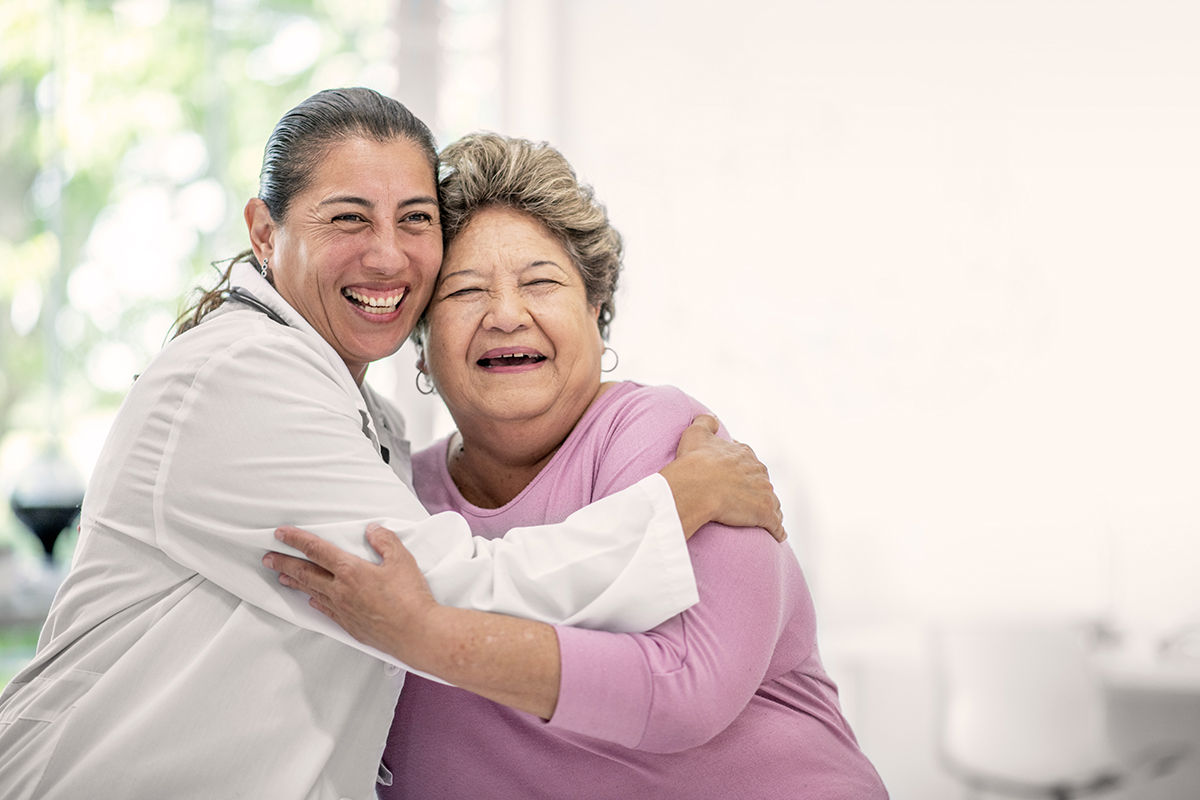
We have more than 60,000 doctors at over 2,000 locations. Our team will help you get the care you need, when and where you need it.

Practicing basic hygiene is a great start. Use these doctor-approved tips to stay healthy at home.
Your child catches a cold (or COVID-19) from someone at school. And then your spouse catches it, too. You don’t have time to get sick — you need to stay healthy to take care of your family. But when you all live under the same roof, this can be a challenge. How do you keep from catching the bug yourself?
Different bacteria and viruses spread in different ways. But there are general guidelines you can follow to avoid getting sick — or at least lower your chances.
Follow these expert tips and tricks to prevent germs from spreading at home.
If possible, have sick family members use one bathroom while you use another, says Janice Johnston, MD. She’s the chief medical officer and co-founder of Redirect Health in Glendale, Arizona.
What if using separate bathrooms isn’t possible in your home? Wear a face mask when you use the bathroom and wash your hands thoroughly. (You can take the face mask off when you brush your teeth and shower, of course.)
If your spouse is sick, it’s also important to sleep in separate bedrooms. This keeps you from breathing in germy air all night. No extra bedrooms? Use a sofa bed or sleep on the couch.
Find at-home COVID-19 testing kits at the Optum Store and have them delivered right to your door.
This is a top way to protect your health. Key times to lather up include:
“Handwashing should last at least 20 seconds using soap and water,” says Dr. Johnston. Encourage your sick family members to wash up frequently, too. This keeps germs from spreading via hand-to-hand (or hand-to-face) contact.
Hand sanitizer also works. Make sure it contains at least 60% alcohol, says the Centers for Disease Control and Prevention (CDC).
“You need to let hand sanitizer dry on its own, instead of waving your hands in the air to make them dry faster,” says Carrie A. Horn, MD. She’s the chief medical officer of National Jewish Health in Denver, Colorado.

We have more than 60,000 doctors at over 2,000 locations. Our team will help you get the care you need, when and where you need it.
Germs can linger on hard surfaces. So be sure to disinfect high-touch areas in your home at least once a day. Some areas to remember:
The CDC recommends cleaning hard surfaces with soap and water first. Then use a disinfecting product, such as a spray cleaner with bleach. Make sure to follow any safety instructions on the product label.
Try not to spend time in a shared space with sick family members, says David Cutler, MD. He’s a family medicine physician at Providence Saint John’s Health Center in Santa Monica, California. This may mean taking turns in the kitchen or living room.
“If you do share space with a sick spouse or child, be sure you’re both wearing high-quality masks — especially if you’re dealing with COVID,” says Dr. Cutler. Increasing ventilation may help, too. Open windows and use fans to circulate the air.
Got sick anyway? We have more than 60,000 doctors at over 2,000 locations. Our team will help you get the care you need, when and where you need it.
Sure, you’re washing your hands constantly. But it’s impossible to keep them germ-free all the time. That’s why you should avoid touching your face whenever possible. “If germs from your hands can’t get in your eyes, nose or mouth, they generally can’t infect you,” says Dr. Cutler.
When loved ones are sick, don’t share items such as:
Wash any dishes and utensils thoroughly with soap and hot water or in a dishwasher. Throw sheets and towels in the laundry frequently (and wash your hands after you pick up the dirty items).
It’s certainly possible that you won’t get sick when your family has a bug. But if you start feeling symptoms, check in with your doctor. Virtual visits are a great option because you don’t have to leave home and risk infecting others. And if you think you have COVID, take an at-home rapid test to confirm.
We’re here to help you stay as healthy as possible — and recover as quickly as you can — all season long. Check out our winter wellness guide now.
Additional sources
Hand sanitizer: Centers for Disease Control and Prevention (2021). “Hand sanitizer use out and about”
Testing sites: U.S. Department of Health and Human Services (2022). “Community-based testing sites for COVID-19"